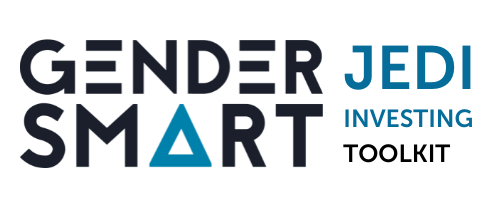The Restorative Investing Task Force
The goal of the Restorative Investing Task Force is to create a library of restorative / non-extractive case examples and to fund BIPOC Intermediaries, Funds and Entrepreneurs using restorative investing practices. This is meant to be a starting point for gathering and sharing information. We invite you to share this information with others and share your resources and restorative investing examples with us to include in this webpage.
Applying an Intersectional Investment Lens Across Gender and Race
Explore how investors might consider both gender and race in their investment analysis, enabling their investment portfolios to uplift women and communities of color more effectively
GIIN Guide for Impact Investment Fund Managers: A Step-By-Step Resources to Creating and Managing a Private Equity Impact Fund: Conducting Due Diligence
This guide gives an overview of the key elements of due diligence.
Stardust Equity Due Diligence
A diligence tool assessing firms’ commitments to combating the unconscious biases that prevent women and BIPOC from achieving their full potential and creating an organizational culture that equally values and promotes diverse talent.
AIMA & Albourne Diversity and Inclusion Questionnaire
Questionnaire based on the Diversity and Inclusion section of the ILPA DDQ published in September 2018 and supplemented by input from Albourne and AIMA as well as institutional investors and fund managers.
Due Diligence 2.0
Due Diligence 2.0 aim to catalyze movement of capital to BIPOC managers, the signatory asset owners, consultants, and financial intermediaries, on behalf of asset owners who value BIPOC manager inclusion, commit to making these specified shifts in their due diligence processes.
ILPA Standardized Due Diligence Questionnaire
ILPA Standardized Due Diligence Questionnaire for institutional investors.
Inequality Trends and Diagnostics in Kenya 2020
This report is a joint publication produced by the Kenya National Bureau of Statistics (KNBS) in partnership with the Eastern Africa research node of the African Centre of Excellence for Inequality Research (ACEIR) based at the School of Economics, University of Nairobi, with support from Agence Française de Developpement (AFD) and the European Union (EU). The report presents a comprehensive analysis of multidimensional inequality in Kenya over the period 1994 to 2016 using nationally representative survey data collected and released by the KNBS. The household datasets used in the analysis were derived from the 1994 Welfare Monitoring Survey (WMS II), the Kenya Integrated Household Budget Surveys for 2005/06 and 2015/16, the Labour Force Survey for 1998/99 and the 2009 Kenya Population and Housing Census. In addition, the report uses secondary data from local and international reports to enrich the information derived from sample surveys.
Bridging the Gap between Local and Expat Founder Funding
Over the years, the inflow of startup funding capital in Africa has been rapidly growing, as investors have started paying more attention to investment opportunities in Africa. Getting down to who received the cash gives deeper insights as to the development of different ecosystems. This article from VC4A puts forth the belief that the question of who received the money is a relevant one and one that should be consistently tracked; or, to put it differently, it is not enough that the cash raised keeps increasing, but it should also reach local founders.
Diversity As $uperpower: The (Well-Known) Data Against Homogeneous Teams In Venture Capital
The data are clear: As with public companies, startup founder and investing teams that are diverse—specifically with more than one gender and/or one race or ethnicity represented—are more innovative and make more money. In fact, venture capital investing teams limited to any one gender and/or any one race damage innovation and risk limiting financial outcomes. This article summarises the steady stream of evidence published since 2013 indicates that when startup teams and venture investing teams embrace differences in gender, race, ethnicity, educational background, and/or professional experience, these heterogeneous teams outperform homogeneous teams.
Responsible Venture Capital: Integrating Environmental and Social Approaches in Early-Stage Investing
As pragmatic investors in challenging markets, CDC and FMO tailor their approach to the nuances of each asset class. Equally, as development finance institutions, they have a deep commitment to responsible investment. Therefore, this report is intended to provide practical advice about how to invest responsibly in early-stage businesses in emerging markets; managing environmental, social and governance (ESG) risks and identifying opportunities, while supporting the growth of innovative companies.
Verve Super's Gender Lens Investing Approach
Verve Super's Gender Lens Investing approach takes into consideration gender-based factors across the investment process to advance gender equality & inclusion and better inform investment decisions
Diversity & Inclusion in the VC Industry
NVCA and Deloitte dashboard to explore who works in the VC industry (US); whether gender, racial/ethnic, or age groups have differing experiences; what firms are doing to enhance diversity and inclusion; and how these findings compare to the benchmark from the inaugural study.
Private Equity’s Chance to Stand Up for Diversity and Inclusion
BCG's report on how private equity firms can accelerate progress toward racial justice.
Racial Equity Investing
Morgan Stanley's report offers a framework for investors to understand the risks and financial impact associated with perpetuating racial inequality, and to identify ways to allocate capital toward opportunities to promote racial justice.
Sustainable & Impact Investing: Racial Equity Investing
Glenmede's primer on racial equity investing demonstrates that racial equity investing can help investors identify unique sources of alpha in three ways: enhanced financial performance, new investment opportunities, and risk mitigation.

